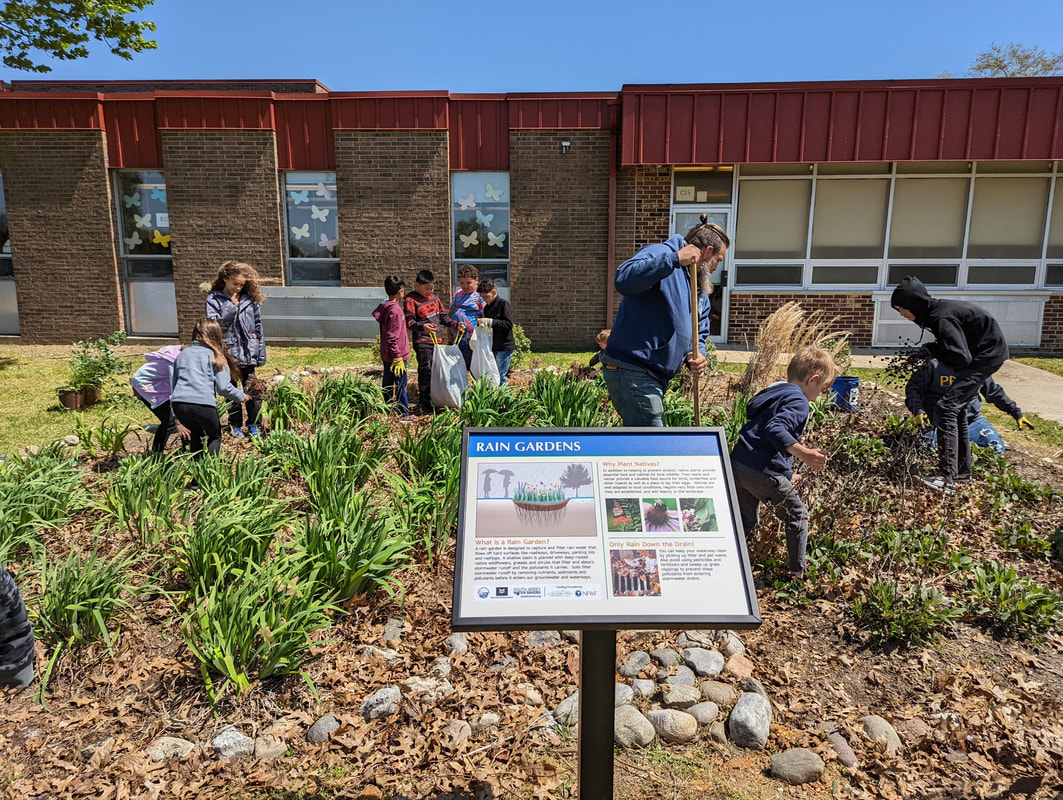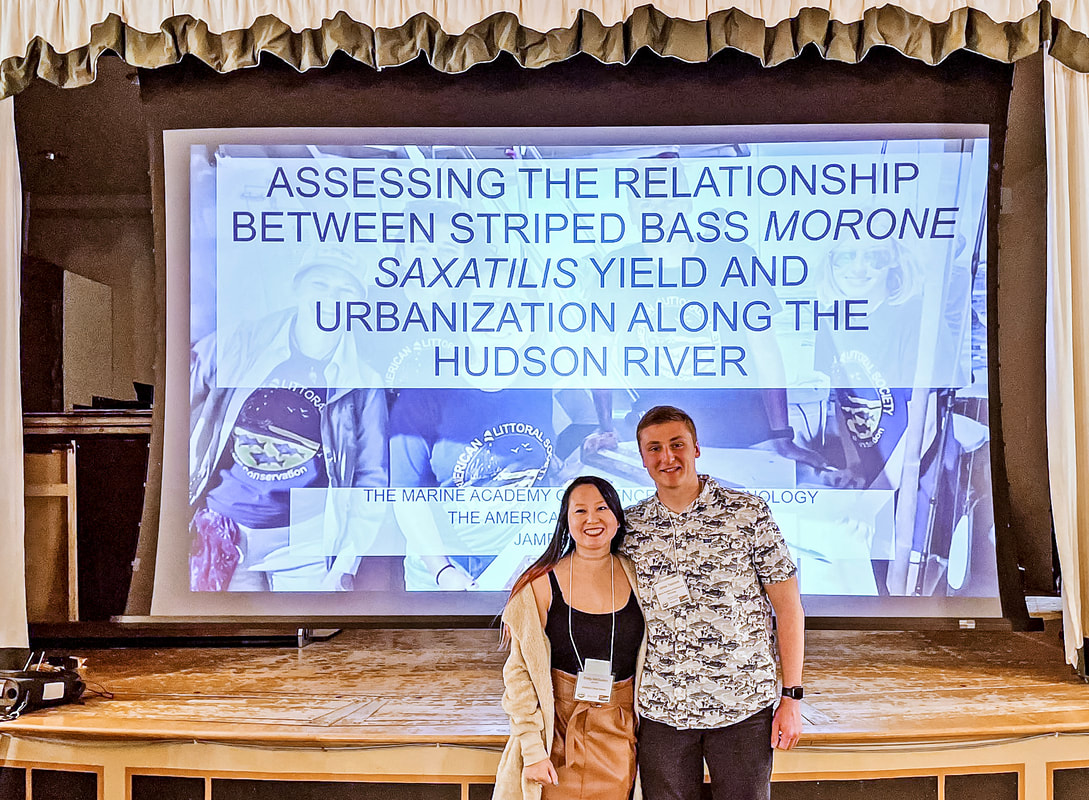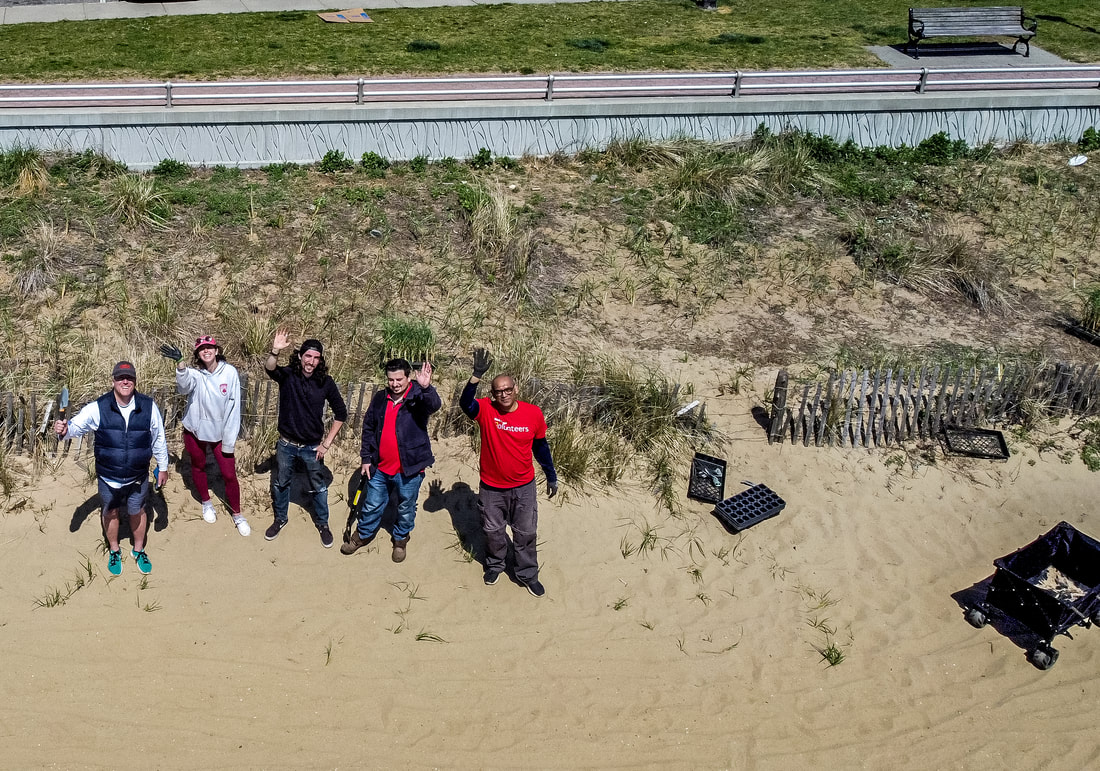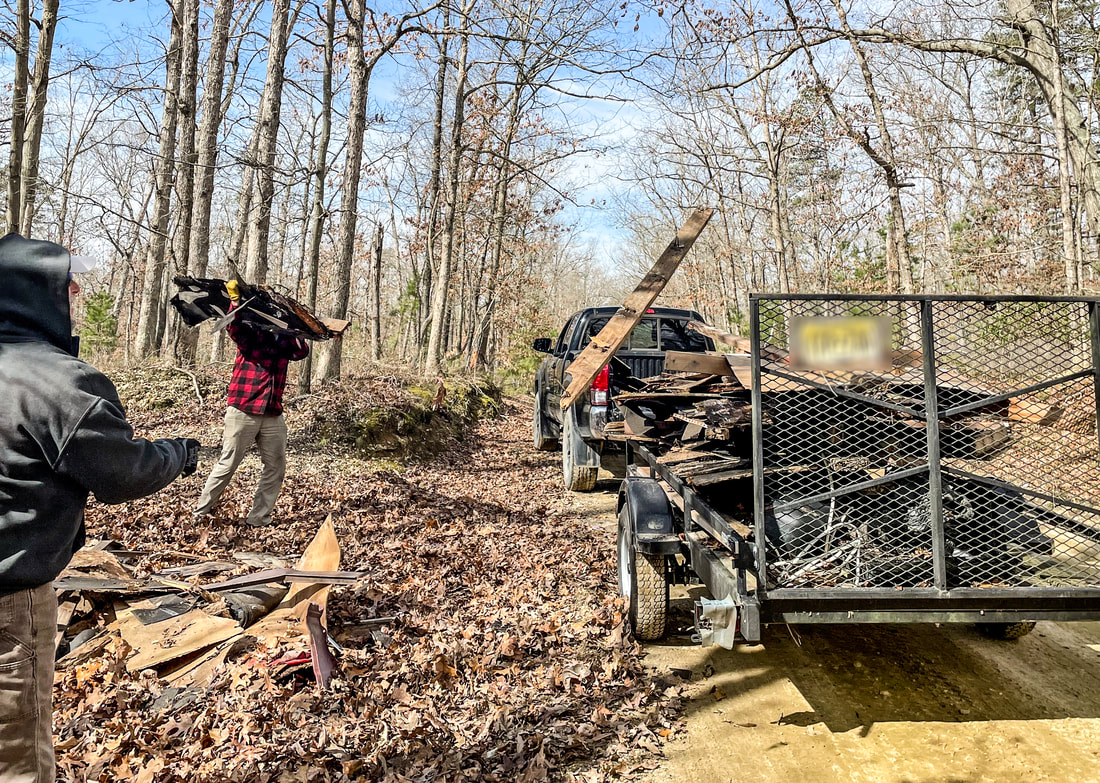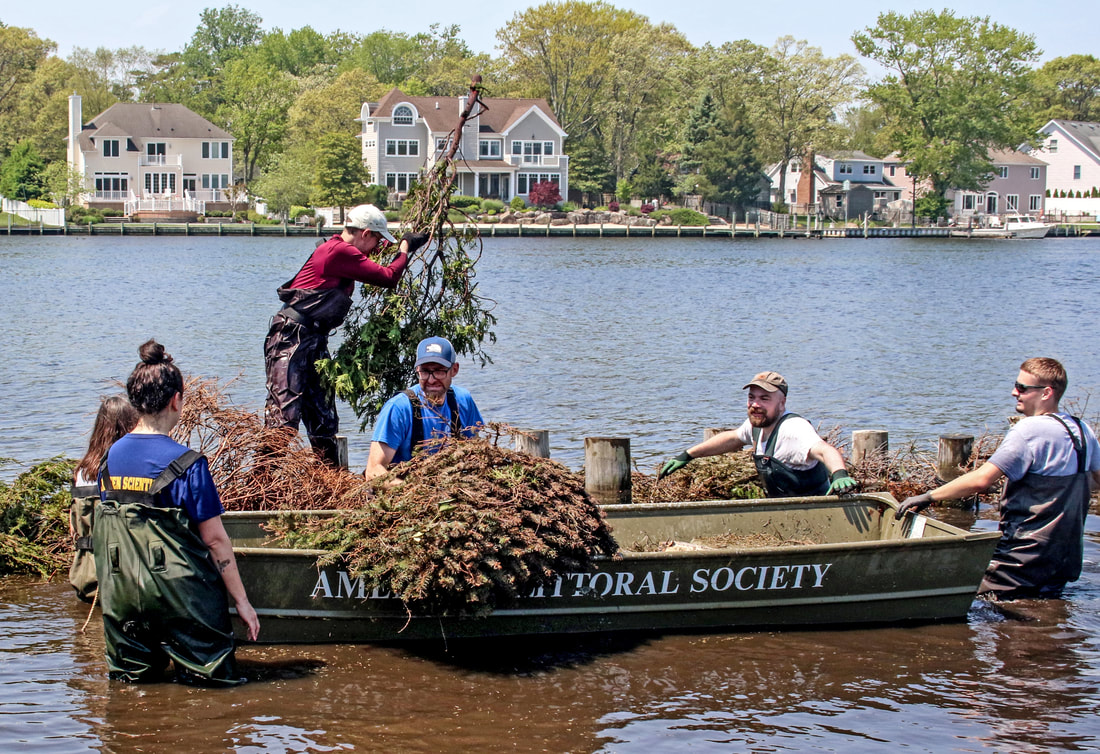|
The American Littoral Society’s work as a South Jersey Water Savers partner organization was recently featured on the POP FM 99.9 radio program Local Interviews with John Salvatore.
In the 4-part interview series, Salvatore discussed the ongoing collaboration between SJ Water Savers and local businesses, farmers, municipalities, and schools. The work aims to address flooding concerns, minimize polluted stormwater runoff, improve wildlife habitat, beautify communities, and create outdoor learning spaces. SJ Water Savers is an educational campaign led by nine environmental organizations, as a part of the Delaware River Watershed Initiative, which is funded by the William Penn Foundation. The campaign’s goal is to protect the Kirkwood-Cohansey Aquifer – South Jersey’s primary source of water. The American Littoral Society is one of the partners in this initiative. For one part of the interview series, Salvatore spoke with Zach Nickerson, a Conservation Coordinator from the American Littoral Society’s Delaware Bay office, and Amber Egorov, a 4th grade Science and Social Studies teacher from Anthony Rossi Elementary School in Vineland, NJ, about the installation of 2 rain gardens at the school.  Fish Tagging Intern Ashley Pape Fish Tagging Intern Ashley Pape Congratulations to the Littoral Society's 2023 fish tagging interns, who attended the Atlantic Estuarine Research Society (AERS) spring meeting from March 23-25 at Monmouth University in Long Branch, NJ. The meeting was focused on coastal and estuarine science in the face of a changing climate. The interns, both seniors at Monmouth County's Marine Academy of Science and Technology (MAST), are James Treshock and Ashley Pape. James won best undergraduate oral presentation for his work on "Assessing the Relationship Between Striped Bass and Morone Saxatilis Yield and Urbanization Along the Hudson River." Ashley is currently studying the effects of climate change on Spiny Dogfish and plans to major in psychology in college next year. Rowan University students recently spent a day visiting two American Littoral Society restoration sites along the Delaware Bay.
The students were part of a student-driven journalism initiative called South Jersey Climate News, which explores the effects of climate change on a local and regional level in southern New Jersey. They spent a day at Thompsons Marsh and Thompsons Beach, which are located in Cumberland County, NJ, amidst the Heislerville Wildlife Management Area. The group was led by Littoral Society Restoration Program staffers Quinn Whitesall McHerron and Toni Rose Tablante. They were also joined by journalism Professor Mark Berkey-Gerard, an SJ Climate News faculty advisor, and Andrew Lewis, a journalist and author of the book The Drowning of Money Island, which chronicles the struggle of his New Jersey hometown to rebuild in the face of poverty, storm damage and rising seas.. Wells Fargo Volunteers Participated in Two-Day Event to Help Plant Dune Grass and Clean Up Debris in Bradley Beach and Perth Amboy on April 19 and 20 In recognition of Earth Month, coastal conservation nonprofit the American Littoral Society welcomed volunteers on April 19th and 20th from Wells Fargo’s New Jersey offices for a two-day volunteer event to help clean up coastal areas along the Raritan Bayshore and the northern Jersey Shore coastline.
Wells Fargo employees volunteered alongside leaders from the Littoral Society to plant dune grass and clean up debris along Kent Avenue Beach in Bradley Beach and 2nd Street Beach in Perth Amboy. In total, volunteers assisted with the planting of 6,000 dune grass plugs across both beaches. According to the Littoral Society, maintaining a dune system is crucial for protecting beaches and nearby communities during storms. Dune grass helps hold dunes in place by weaving intricate, interconnected root systems, which can extend more than three feet beneath the sand and expand rapidly. It also helps to build dunes by capturing blowing sand, which raises the height of the dune. That, in turn, forces the grass to grow taller, and the cycle begins anew, forming a bulwark against future storms. With the help of volunteers, an area of forested land in southern New Jersey is now one step closer to being permanently protected as open space.
On Saturday, April 8, over 20 volunteers turned out to help clean up illegally dumped materials on an 86-acre tract in Vineland, NJ that will be added to the neighboring Menantico Creek Preserve. The volunteers removed enough trash to fill a 30-yard dumpster. In addition, nine tires and several gallons of paint and oil were removed and properly disposed of, along with nearly 20 tons of asphalt that had been illegally dumped. As part of the legal negotiations to preserve the land, the NJ Department of Environmental Protection required removal of any existing trash before they could approve the use of Green Acres funds to preserve the land. That’s when The Society and New Jersey Conservation Foundation (NJCF), with help from the Pinelands Preservation Alliance, reached out to their members and the neighboring community for help. At the Littoral Society we believe that every day is Earth Day. But that doesn't stop us from celebrating April 22 every year with a slate of Earth Day themed events.
This year the Littoral Society's Earth Day activities will begin on Thursday, April 20 with a presentation on how people can reduce our impact on the planet. The event will be held at Bridgeton, NJ's Cumberland County Library. Then, on Saturday, April 22 we will host a volunteer day at our Slade Dale Sanctuary living shoreline project in Point Pleasant, NJ and a Jamaica Bay beach cleanup at Spring Creek Park in Queens, NY. Our Earth Day celebration will conclude on Sunday, April 23, with a dune grass planting in Asbury Park, NJ and an Earth Day celebration at Hollis Playground in Queens, NY. Read on for more information about all of these activities. Philadelphia will hold mayoral elections in 2023, with the primary occurring on Tuesday, May 16. In preparation for that election, the Littoral Society and the PennEnvironment Research & Policy Center, along with and nine other organizations, have provided an educational primer on paths to clean water for all Philadelphians, outlining specific actions to make the city's waterways cleaner and more accessible to residents.
Philadelphia is blessed with some of Pennsylvania's most beloved waterways like the Schuylkill and Delaware rivers. Sadly, discharges of raw sewage from antiquated combined sewer systems are a significant source of pollution for these great rivers and the communities through which they wind. Not only do the raw sewage discharges reduce the quality of life for all of the city's residents, they disproportionately impact communities of color, perpetuating environmental injustice for residents of disadvantaged communities. The Green City, Clean Waters program has begun to reduce the volume of combined sewer overflows (CSOs) by retaining stormwater using green infrastructure, but more needs to be done. We believe the following items would help remedy these concerns, advance the goal of the Clean Water Act to end all pollution from entering our rivers, and provide significant employment opportunities. |
Archives
July 2024
Categories
All
|

